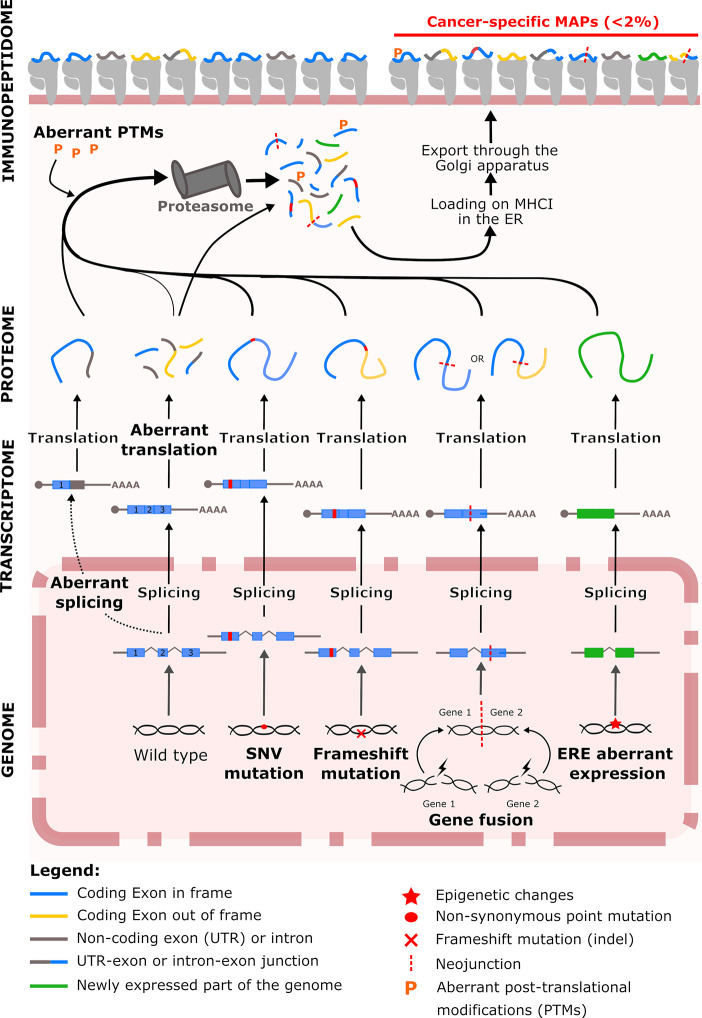Figure 1.
Overview of the tumor-specific antigen production in tumor cells. At the genomic level, cancer cells accumulate tumor-specific genetic and epigenetic changes. Within genomic alteration, single-nucleotide variants (SNVs) represent an historic source of immunogenic neoantigens. Insertions/deletions (indels) or gene fusion events increase the tumor immunogenicity by generating peptide deriving from the out-of-frame translation of coding exons. Epigenetic alterations induce the aberrant expression of endogenous retroelements (EREs) which generated non-mutated cancer-specific peptides with a high immunogenic potential. In addition to genomic alterations, Post-translational modifications (PTMs) cancer-specific events such aberrant splicing events, ribosomal translation and PTMs also contribute to the generation of cancer-specific major histocompatibility complex class I (MHC I)-associated peptides (MAPs). ER: endoplasmic reticulum.

